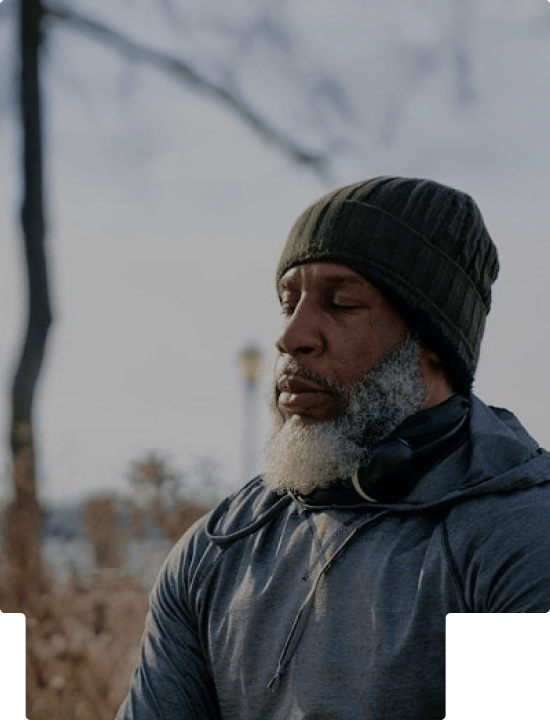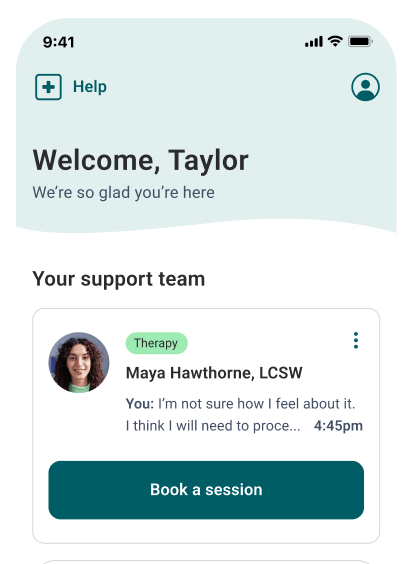Train for life
Men today may feel pressure to optimize everything—their workouts, their sleep, their supplements, their schedules. But fine-tuning the external won’t prepare you for life’s biggest challenges and richest opportunities if you ignore your inner self. Navigating work, relationships, and modern-day dramas requires the wisdom and resilience you can only develop by working on your mental health.
Real guys talk mental strength
Listen to men share how Talkspace therapy strengthens their communication skills, relationships, and self-knowledge.
Expert insights on how men can strengthen their mental health
“Prioritizing mental health helps men find steadier footing where they are strong enough to face challenges, and open enough to fully appreciate the joyful moments. That balance makes it easier to handle life’s curveballs and not feel stuck in an endless cycle of stress.”
Any questions?
Find trust-worthy answers on all things mental health at Talkspace.

What is Men's Health Awareness Month?
Men’s Health Awareness Month is a month dedicated to raising awareness about health conditions that affect men, including mental health conditions. More than 6 million men in the US experience depression each year, but many go undiagnosed. When men experience mental health challenges they are significantly less likely than women to receive help, but more likely than women to self-medicate and, tragically, are 3.9 times more likely to die by suicide.
Why is it important to talk about men's mental health?
Talking about men’s mental health can help men recognize when they’re struggling with mental health challenges, and can destigmatize seeking help through therapy, medication, or other solutions. Because of long-established cultural ideas that suggest men should be “strong silent types” or tough it out and not talk about their problems, it can be especially hard for men to open up and admit that they’re struggling. Normalizing the idea that men can and do get mental health support like therapy can show that talking about mental health is a form of strength, and that can be no less than lifesaving.
What are signs of depression in men?
The signs and symptoms of depression in men are often different from those typically experienced by women. Not every man experiences depression the same way, but these are some common symptoms:
- Restlessness or feeling anxious
- Anger or irritability
- Aggressive, controlling, or risky behavior
- Escapist behavior
- Problems with sexual desire
- Loss of interest in work or hobbies
- Feeling sad, empty, guilty, or hopeless
- Tiredness and sleeping too much or too little
- Difficulties with concentration or memory
- Changes in eating habits — either eating too much or not enough
- Physical pains — cramps, headaches, digestive problems
- Substance abuse
- Withdrawal from family and friends
- Suicidal thoughts
What are anxiety signs in men?
Anxiety often doesn’t manifest with acute symptoms like a racing heart or sweating, and male anxiety symptoms can feel different than worry or fear. Some physical and emotional symptoms to watch for:
- Feelings of dread
- Frequently worrying about things going wrong
- Avoidance
- Difficulty concentrating
- Feeling overly vigilant
- Irritability, edginess, or anger
- Absentmindedness
- A racing heart or excessive sweating
- Headaches, muscle tension, GI issues
- Outbursts of anger
- Feeling restless or agitated
- Feeling dizzy or having vertigo
- Insomnia
- Shortness of breath
- Panic attacks









